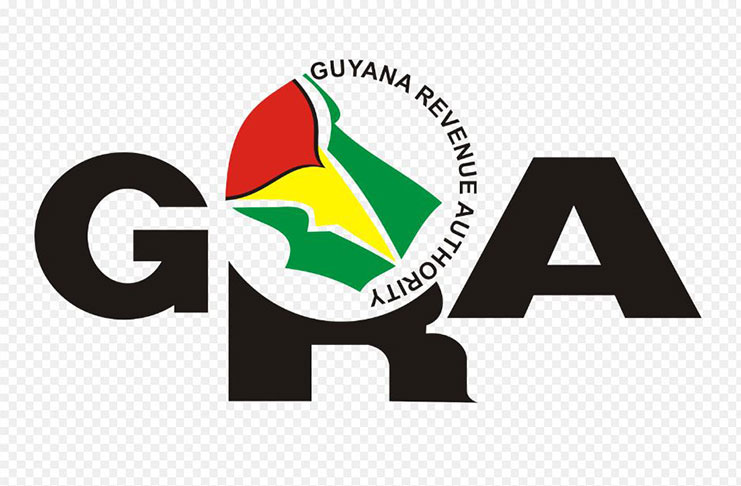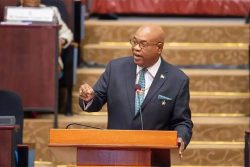“Extraordinarily time consuming” is how the Guyana Revenue Authority (GRA) has described interpreting and enforcing the terms of the 10 Production Sharing Agreements (PSA) signed between Guyana and 16 international oil companies.
“Given that the Oil and Gas Sector is in its rudimentary phase most terms within the PSA and the legislation are subject to interpretation. This has to be meticulously and punctiliously read and interpreted which is extraordinarily time consuming; since the outcome of these inaugural activities would set precedents within this burgeoning sector,” a draft report from the authority explains.
According to the report, prepared by Commissioner-General Godfrey Statia for a potential handing over, the nascent Petroleum Revenue Audit Department (PetRAD) has had to pit is skills and resources against the selective interpretation of the PSA and legislation by both the international oil companies and service providers.
PetRAD which was operationalized in September, 2019 holds a two-fold mandate which includes the administration of taxes within the Petroleum Sector through the performance of revenue compliance activities to ensure there is adherence to Guyana’s tax and petroleum laws and regulations, as well as, PSAs.
The report explained that the GRA developed a robust and detailed implementation plan to guide the establishment of the department. The plan, it notes, also encompassed considerations for the Petroleum Tax Regime.
“Premised on this plan, all core activities needed to fully operationalize the Department should be completed by December 31, 2020 whilst the institution of the Petroleum Tax Regime should be realized by March 31, 2021 contingent on the containment of the global COVID 19 pandemic and the sitting of Guyana’s National Assembly,” the report states. It is not clear if these deadlines have been met. No oil and gas-related legislation has been introduced by the government since it took office in August last year.
The report goes on to explain that the incongruence between the Tax legislation and the PSAs was also addressed through the drafting of new legislation for the Extractive Industries, which is still to be enacted. Major strides have been made in creating the operational framework for the Department and instituting measures to support the administration of revenues within the Petroleum Sector, it states.
The second aspect of PetRAD’s mandate is the Execution of Cost Recovery Audits aimed at verifying the expenditure claims of contractors who have entered into PSAs with the Government of Guyana and ultimately the State’s share of Profit Petroleum.
As of June 2020 the audit efforts of PetRAD had resulted in revenue contributions amounting to $576.93 million.
By May 2020 PetRad had engaged 38 Oil and Gas Taxpayers to execute Issue-based audits into their tax affairs, for the period November 1, 2019 to May 8, 2020.
The report explained that 84 Tax type Audits were opened for these taxpayers, 16 of which had been completed by June 2020. These 16 related to 11 taxpayers.
“Whilst we have managed to complete the audits of seven taxpayers (premised on the completion of all identified Tax Type Audits for these taxpayers), the audits of 31 taxpayers are ongoing,” the report states adding that 68 Tax type Audits are ongoing for these 31 Oil and Gas taxpayers.
Additionally, while the Department is participating in the initial Cost Recovery Audit of the Stabroek Block for the period 1999 to 2017 the report advises that strategic decisions need to be made as it relates to the operationalization of the Cost Recovery Audit Division and by extension, the deployment of staff to serve within the Division.
Currently the complement of the Petroleum Revenue Audit Department has expanded to 14 officers since its establishment but 11 of the 14 officers directly involved in the execution of Audits are officially assigned to the Tax Audit Division. The only assigned member of the Cost Recovery Audit Division is the Assistant Commissioner.
“A project team, constituted mainly of Managers of PetRAD, was formed to facilitate the execution of the first Cost Recovery Audit,” the report states.
Other challenges include the failure of all related Government Departments to sign on to a Memorandum of Understanding governing the sharing of pertinent information.
“This has significantly hindered the Authority’s ability to access the documents needed to plan all Cost Recovery and Tax Audits, as well as, adopt more proactive contemporary audit techniques,” the report lamented, adding that the GRA was unable to control the timely achievement of audit deliverables granted that the Cost Recovery Audit is conducted collaboratively by three Government Agencies.









